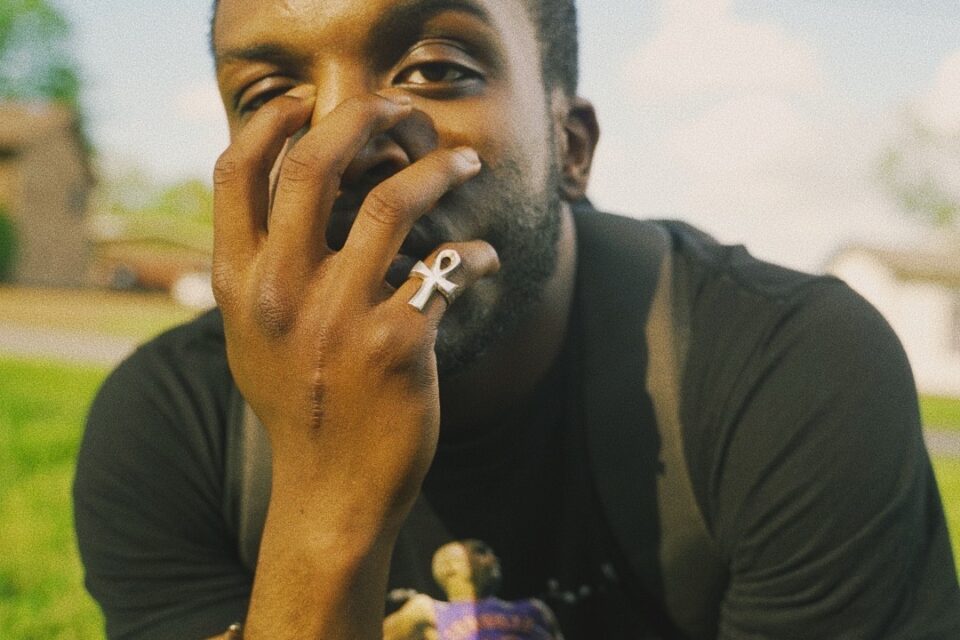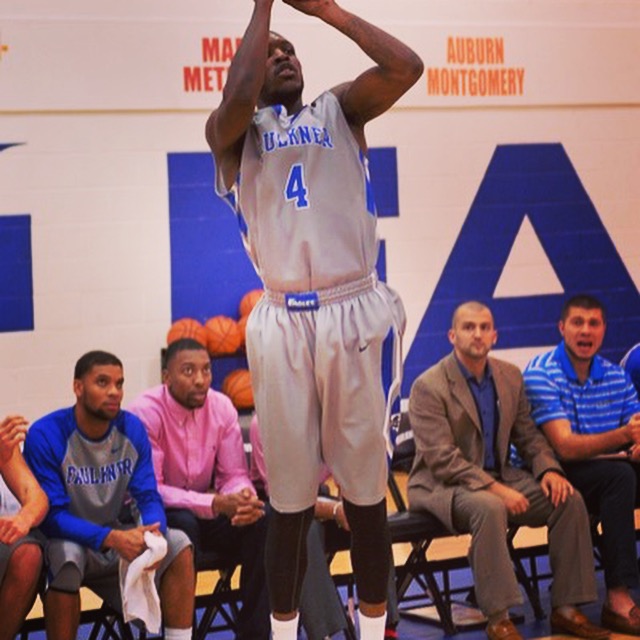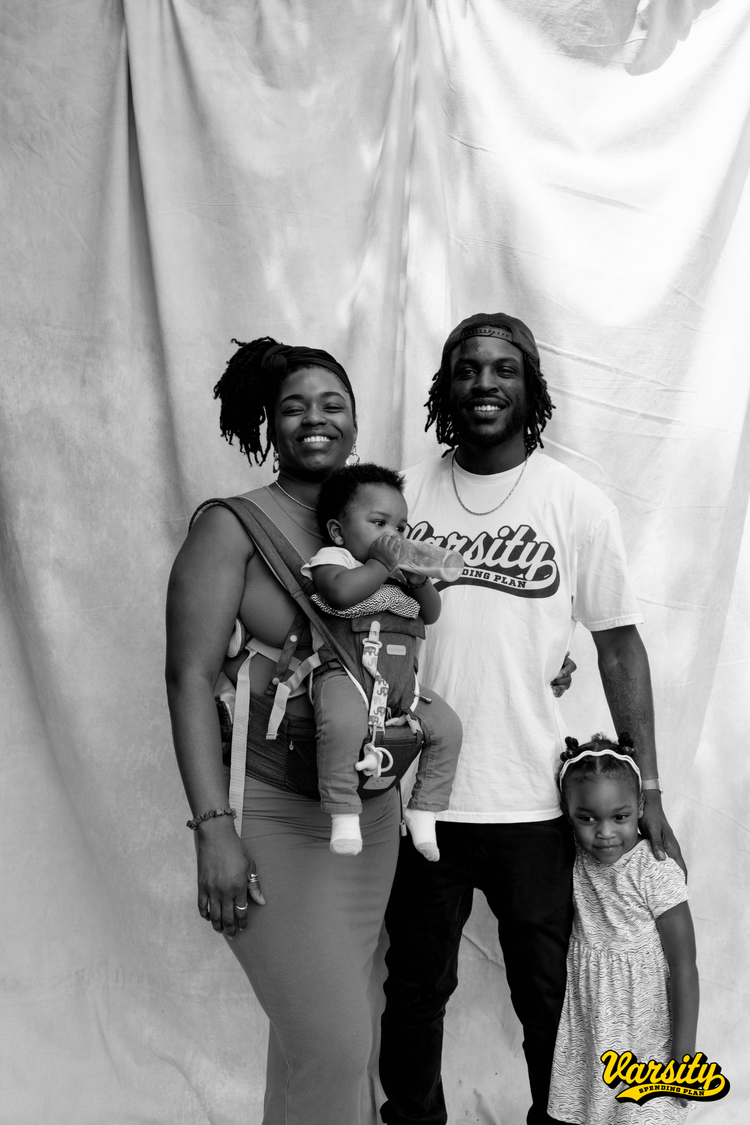
Chuck INDigo opens his seventh project, Until I Get There, with a song that establishes the album’s reflective tone. During one verse, over a gently lurching beat and burbling synths, he contrasts the old him with the new.
In an interview with WNXP, he explains that he used to feel a certain amount of pressure to conform to one of two entrenched molds for a rapper. Either talk about surviving the streets — “the whole ‘tough guy’ thing and just having to be coming from struggle” — or keep to a socially conscious message.
But over time, he decided that those templates were limiting. On the one hand, he says, even though he saw that a backstory like “your daddy and your mama was strung out” would be marketable — given how marginalized people’s trauma narratives are often fetishized —“I didn’t want to lie.” On the other hand, he didn’t want to come off as “preachy.”
“That becomes a very hard persona to keep up,” he observes, “because I’m a person. I got flaws. I got vices.”
INDigo goes on, “I think it’s corny as hell to think that, as a rapper, you got to be some gangster, because think about what a rapper is — it’s a poet.”
The backdrop for these ruminations is the East Nashville that INDigo grew up in, the one that hadn’t yet been radically reshaped by waves of gentrification, where residents lived in proximity to shootings and drug deals.
“I knew that stuff was all around me,” he says, strolling down the street he grew up on, “just people never let me life that life. I think the stability of my childhood is a big catalyst for who I am as a person.”
He muses aloud that his upbringing “in a two-parent household, in a middle-class neighborhood in Nashville, going to the same school, same church” may not sound like gripping subject matter. “But I experienced so much,” he says. “If I just honor that, I think that’ll connect with somebody.
Over the last several years, Indigo has emerged as a leading voice, searching mind and true ringleader in Nashville hip-hop. The alt-weekly Nashville Scene just named him the city’s best rapper. So, it’s particularly striking that it’s taken him until now to figure out that where he wants his music to come from is his unflinching processing of his own background, external environment and inner life.
‘I try to be self-aware, and I genuinely liked what I heard’
He opens the door to the brick home where his folks still live and points out which bedrooms were his at various points. “They’ve changed some decorations,” he notes, glancing around at the fall décor. “For the most part, this looks like what it looked like when I was growing up.”
Back then, he wasn’t yet Chuck INDigo, the artist. He texts his mom at work to find out where she’s stashed the family photo albums, then grabs a couple and plops down on the living room couch. Flipping through one, he points out a copy of his birth certificate. It says “Nick Drake.”
Then, he finds an old basketball picture where he sports a tiny pair of Jordans. “That’s the first year I played basketball,” he says. “I was three.”
Indigo has a hard time remembering exactly when he started singing, but it was around that same time: “I just know my mom was the choir director, and we were always at church. So, yeah, I was in the choir.”
First, he just belted with conviction, with the other kids. “That part makes you not afraid of your voice,” he says. “Then, when you find out you got a voice in the Black church, they will make you sing lead.”
He started learning parts, picked up instruments by ear and joined the school choir. He wrote a little spoken word poetry too. But all of that took a backseat to balling. He started college at Trevecca Nazarene, before transferring to Faulker University in Montgomery, Ala., and was on scholarship all four years. “I believed I was going to the NBA up until about my sophomore year in college,” he recalls.
It was around then that he first tried rapping with some Nashville friends and heard a recording of himself rhyming. “I try to be self-aware,” he says, “and I genuinely liked what I heard when I heard myself back.”

‘Just trying to give you the hardest bar he can think of’
Not even his closest buddy on the team, Cam Porter — the one he always had to match up against at practice, since they both played guard — knew what he was up to. “We respected each other,” says Porter, “because we knew, ‘I can’t show up and not be on my stuff, because he’s probably going to give it to me.’”
On the bus ride home from a game, Porter saw his friend typing out lyrics and asked to hear what he was working on.
Porter had already dabbled in beatmaking, so from then on, the two challenged each other musically. They set up a small closet studio in their shared apartment and got to work on the first Chuck INDigo album. That moniker originated as a lighthearted nickname.
“I honestly wanted to use my name,” says Indigo. “The only thing was there’s a folk artist. His name is Nick Drake. And apparently he’s really good.”
That Nick Drake, who met an early end in the mid-1970s, is indeed held up as an archetype of melancholic British chamber folk.
Porter says that was just one more thing pushing Indigo to prove himself: “Everybody knew him as Nick Drake, the basketball player. He really wanted people to take him serious as Chuck INDigo, the rapper. So everything would come off extremely aggressive, on every line, just trying to give you the hardest bar he can think of.”
‘When you’re ready to go look at yourself in the mirror and reflect…’
They both graduated and moved away. Indigo was back in Nashville getting married and having kids. He briefly tried making music full-time, before seeking more stable income from an IT position, then joining the staff of the community organizing nonprofit Southern Movement Committee.
“I’m never going to put my family’s security in jeopardy to try to chase music,” Indigo makes clear. “Like, music ain’t going nowhere.”
When adult responsibilities exert pressure, that’s when a lot of young artists downgrade music to a hobby, or shelve it altogether. Not him. Over the past seven years, his inner drive and bursts of creativity have yielded a string of albums and EPs, an independent artist collective and label called Third Eye & Co. and numerous guest features with Nashville peers, who hold him in high regard.
Porter’s stayed close with INDigo, texting him beats — including two that wound up on the new album — and witnessing his evolution. “I think it’s a culmination of just years of deciding what type of artist he wants to be, what type of person, what type of dad,” he says. “I’ve never seen him so sure about a project.”
INDigo’s back to doing almost as much mellow singing as rapping in his trademark needling tone. Until I Get There is full of congenially laidback hooks. But don’t expect him to supply any party bangers.
“It ain’t my job to do that,” he says. “When you’re ready to go look at yourself in the mirror and reflect, turn on my sh*t.”


